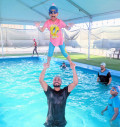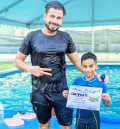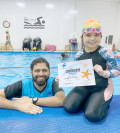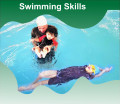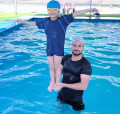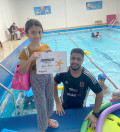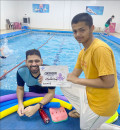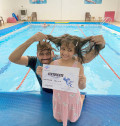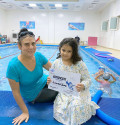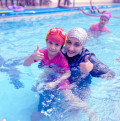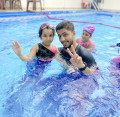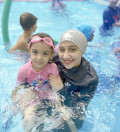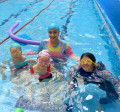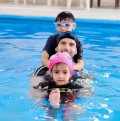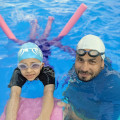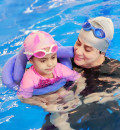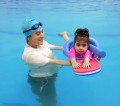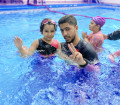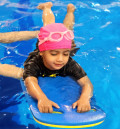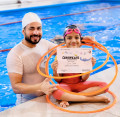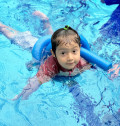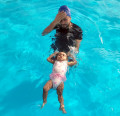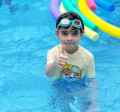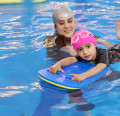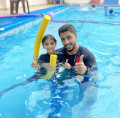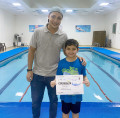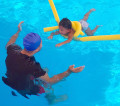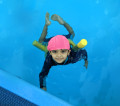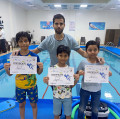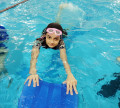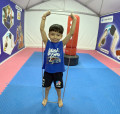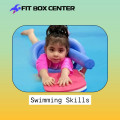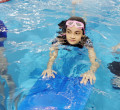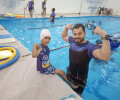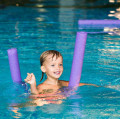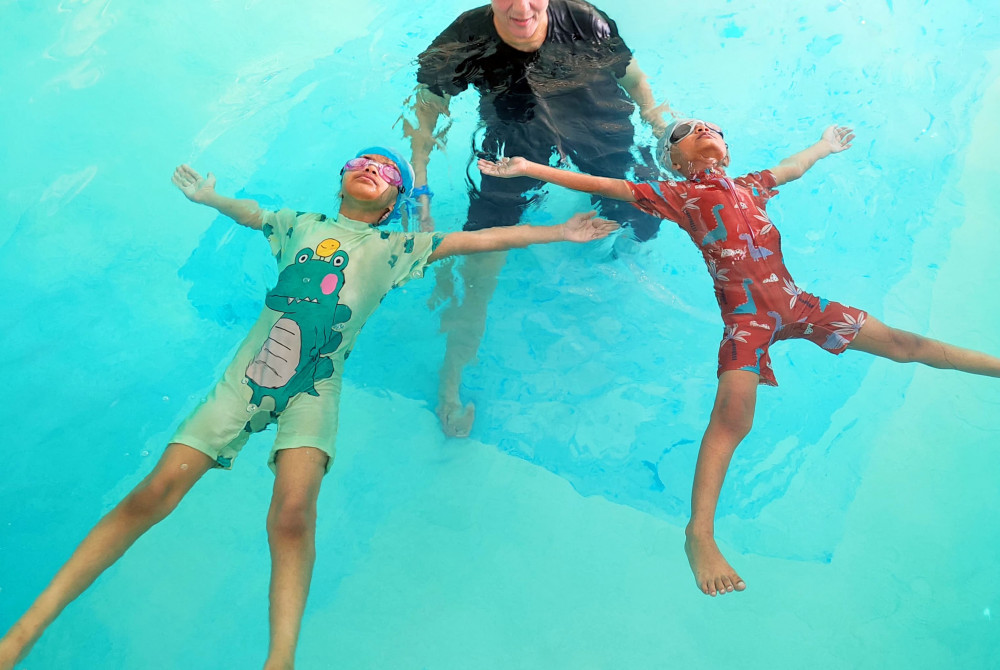
How To Encourage Your Child While They Learn To Swim
2023-12-13 - swimmingIntroduction
Learning to swim is a crucial life skill that not only
ensures safety but also opens up a world of recreational possibilities. As a
parent, your role in encouraging your child during this journey is pivotal. In
this article, we will explore effective ways to support and motivate your child
as they take their first strokes into the world of swimming.
Choosing the Right Swim Program
Before your child dives into the pool, it's essential to
research and choose the right swim program. Safety measures, instructor
qualifications, and the overall environment should be considered to provide the
best learning experience.
Preparing Your Child Mentally
Building excitement and addressing fears are key components
of preparing your child mentally for swimming lessons. Create positive
associations with water and assure them that learning to swim is a fun and
exciting adventure.
Investing in Quality Swim Gear
Quality swim gear ensures your child is comfortable and safe
in the water. From goggles to swim caps, investing in the right equipment is a
small but significant step in their swimming journey.
Finding the Right Instructor
A skilled and supportive instructor can make all the
difference. Look for someone with experience, patience, and the ability to
build a rapport with your child, fostering a positive learning environment.
Building Confidence in the Water
Gradual introduction to water and positive reinforcement are
essential in building your child's confidence. Celebrate small victories, and
let them know that progress is a journey, not a destination.
Making Learning Fun
Incorporating games and play into swimming lessons not only
makes learning enjoyable but also helps your child develop essential water
skills without feeling pressured.
Consistency is Key
Regular practice is crucial for skill development. Set
realistic goals, and be consistent in attending lessons. Consistency helps your
child build muscle memory and confidence in the water.
Handling Setbacks Positively
Swimming, like any skill, comes with its challenges. Encourage
resilience in your child, and work together to identify and address any
setbacks positively.
Parental Involvement
While it's important not to overwhelm your child, showing
support from the sidelines and celebrating achievements together strengthens
the bond between parent and child.
Transitioning to Advanced Skills
As your child progresses, introduce advanced skills
gradually. Encourage a love for swimming by exploring different strokes and
techniques at their own pace.
Creating a Supportive Environment
Encourage friendships with fellow swimmers, fostering a
positive atmosphere. A supportive environment outside the pool contributes
significantly to your child's overall swimming experience.
Recognizing and Rewarding Effort
Building self-esteem is a vital aspect of learning to swim.
Recognize and reward your child's effort, emphasizing the importance of the
learning process rather than just the end result.
Overcoming Common Concerns
Address common concerns such as fear of water and accidents
with empathy and understanding. Provide the reassurance your child needs to
overcome obstacles.
Conclusion
In conclusion, supporting your child in learning to swim
goes beyond the pool. It involves creating a positive mindset, offering consistent
encouragement, and celebrating every milestone. By investing time, patience,
and positivity, you can help your child not only become a confident swimmer but
also develop a lifelong love for the water.
Make Swimming Positive and Fun
If swim lessons make your child nervous, try to find out
what the underlying problem is. Does your child have a fear of sinking? Maybe
they don’t like the way water feels on their face? There are lots of reasons
children may be reluctant to swim. When you get to the root of the problem,
then you can address it.
If your child has a fear of water or can’t tolerate the way
water feels, focus on creating positive experiences. Be understanding, and move
slowly. Try having your child blow
bubbles in the bathtub. If you’re near a natural body of water, have a
picnic and just let your child get used to being near the water. When he or she
is ready, try wading in and looking for shells or rocks along the edge.
Games are also a great way to increase comfort in the water.
For young children, this could mean simply playing with toys in the bathtub.
For older children, who are becoming more competent at swimming, try games like
Marco Polo or have them grab toys from either the surface or the bottom of the
pool, depending on their level.
If your children are uncomfortable starting classes because
of a fear of fitting in, remind them that there will be other children around
the same age and level in their class. If it’s possible for them to take
lessons with a friend, that can also go a long way toward easing their anxiety.
Be A Good Role Model
Our children are always watching us. Be mindful of the
attitude you are modeling for your child. Are you fearful of water yourself?
You may need to take steps to increase your own comfort around the water so you
don’t pass it on to your children.
Always try to model good water safety, but also, show your
children that you have fun in and around the water. If children see that you
are having fun while swimming, they’re more likely to want to join in. This
also applies to siblings.
If you have other children who are comfortable in the water,
encourage them to help your reluctant swimmer. Have them play games together in
the water or invite friends along. Your child won’t want to sit on the
sidelines while the other kids have all the fun.
Get Involved
We always encourage family involvement in lessons. In fact,
we require parents to participate in lessons for our youngest children. You’ll
be in the water, physically touching, and always within arm’s reach. Your
instructor will teach you skills that you can practice outside of lessons, too.
Next time your swimmer is feeling discouraged, try some of
these tips. And remember, you can always speak to your child’s instructor about
any difficulties they are having.






















































